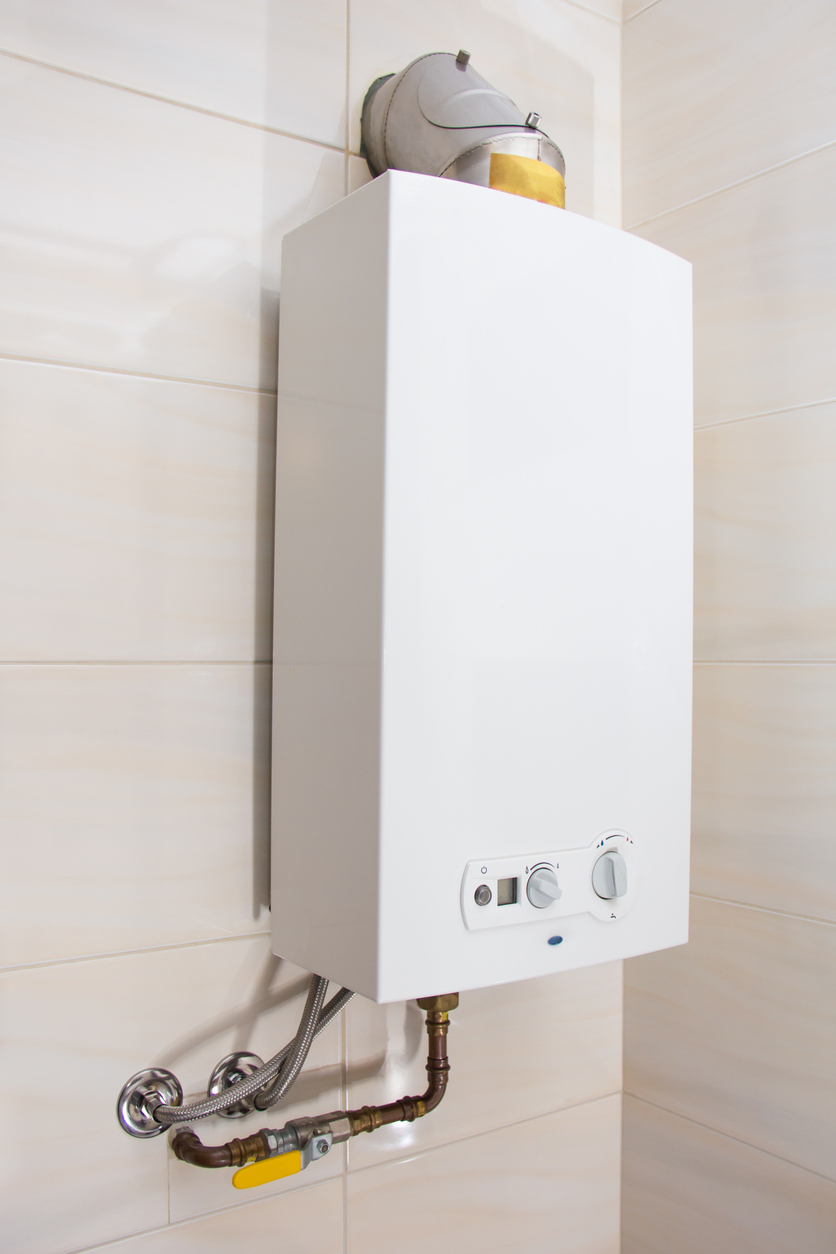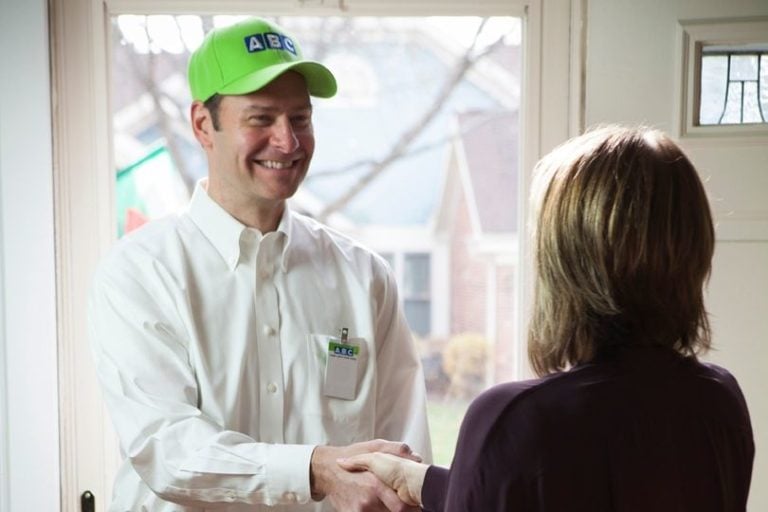 One of the most critical aspects of your home’s plumbing system is the hot water tank. If you’re in the market for a new one, consider upgrading to a tankless water heater.
One of the most critical aspects of your home’s plumbing system is the hot water tank. If you’re in the market for a new one, consider upgrading to a tankless water heater.
How Do Tankless Water Heaters Work?
A tankless water heater is an on-demand water heater. These freestanding units heat your home’s water without needing a large storage tank. When a hot water tap is turned on, cold water will travel through the unit, where it will be quickly and efficiently heated by a gas burner, an electric element, or liquid propane, depending on the type of tankless water heater you have. From there, the hot water is sent to your faucet. This all happens immediately and without that awkward lag time when you have to busy yourself with household errands while you wait for the water to warm up so you can take a shower.
Benefits of a Tankless Water Heater
Tankless water heaters are often more energy-efficient than traditional water heaters, making them the right choice for homeowners looking to lower their energy usage and bill. With water heating accounting for 15% to 18% of your overall energy use, these savings can add up. While these units may cost more upfront, they’ll pay for themselves in energy savings over time.
Another benefit of the tankless water heater is instant and endless hot water. If you’ve ever been the last one in the family to shower and have experienced the moment your water goes from hot to warm to room temperature, all while you have shampoo lathered in your hair, then you know just how important this is! One thing to note about tankless water heaters, however, is their flow rate. The flow rate is the amount of hot water that’s available to you per minute. Without the traditional hot water tank, your flow rate could be less with the tankless unit. For example, if you plan to run the dishwasher at the same time you’re taking a shower, you’ll want to pick a unit that boasts a higher flow rate as well as a temperature rise that works for your family’s needs.
One other significant benefit of tankless water heaters is their life span. These units can last more than 20 years, much longer than the average traditional storage tank heater. If your home is low on space, these units are a great option because they’re smaller, not to mention they decrease the risk of flooding without the large reservoir.
Things To Consider Before Buying
When selecting a tankless hot water tank for your home, here are a few things you’ll want to consider:
- Gas, electric, or liquid propane – Liquid propane and gas heaters can be more efficient and cheaper to run than electric units. Maintenance on propane and gas heaters, however, can be more complex and expensive than electric heaters. With electric, you also don’t need to worry about venting. Electric units tend to make the most sense in a home that’s already built due to ease of installation, while gas heaters are great options for new construction.
- Indoor or outdoor – Indoor units are beneficial in that your investment is protected from the elements. Still, it can present problems that may need to be addressed, such as condensation and ventilation if you’re using gas. An outdoor unit is a great option, especially in warmer climates like Florida, but they require more maintenance than indoor units.
- Whole-house or point of use – It is usually easier to install one whole-house unit with an existing home. If you’re working with new construction, installing point-of-use water heaters for individual appliances or areas in the house such as the dishwasher or the master bath may be advantageous.
To learn more about how a tankless water heater might benefit you, contact the professionals at ABC by calling 888-868-6667 for Chicago, 813 452-5952 for Florida, or reach out online to schedule service!
Our Blog
VIEW ALL BLOGS
How to Check Air Conditioner for Mold
READ MORE-
How To Check Your Furnace Flue Each Heating Season
The flue safely transports combustion gases through your home and up through the roof, expelling them above the roofline. Any blockages, leaks, or damage to the flue could allow combustion gases to enter your home, with dangerous or even deadly health consequences. Learn more in this blog post.READ MORE -
5 Causes of a Low Hot Water Supply (And How to Fix Them)
If your water heater isn't heating adequately, potential causes include a broken dip tube, sediment buildup, malfunctioning heating components, distant placement from faucets causing heat loss, or an undersized tank unable to meet demand. Regular maintenance and inspection by a licensed plumber can address these issues and ensure optimal performance.READ MORE -
How to Fix a Blank Honeywell Thermostat
A blank Honeywell thermostat screen disrupts your home comfort control. First, check the batteries, ensuring they are correctly inserted. Next, verify that your electrical breaker hasn't tripped. If you have a manual safety switch on your HVAC system, try resetting it. Finally, follow the specific steps to restart your Honeywell thermostat model. If you're uncomfortable with these troubleshooting steps or need further assistance, contact ABC Plumbing, Sewer, Heating, Cooling, and Electric for professional HVAC services.READ MORE
Our Promises To You
-

Convenient For You
We Work on Your Schedule
-

Background Checks
We do Drug Tests And Background Checks Before Hiring
-

No Need For Stress
Get ABCs Worry-Free Guarantee at No Cost
-

No Surprises
Pricing is By the Job, Not the Hour

